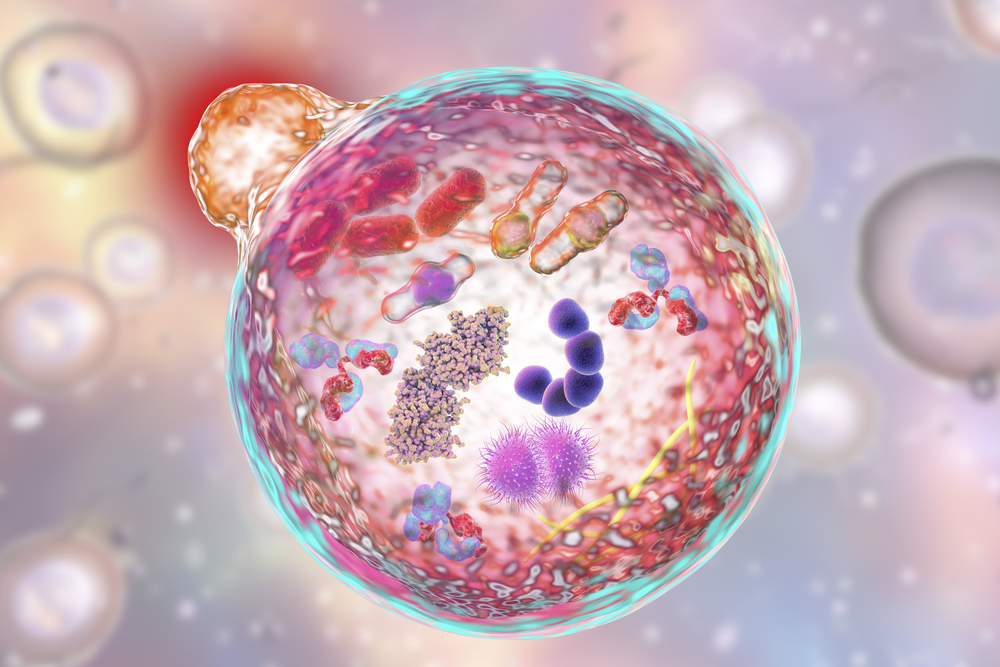Link Between Lysosomes and Granulins in Brain Cells May Aid Understanding of Alzheimer’s
Written by |

Researchers developed antibodies targeting a group of proteins called granulins, and discovered for the first time that they’re important to the well-being of lysosomes, which are vital organelles linked to neurodegenerative diseases that include Alzheimer’s disease (AD) and frontotemporal dementia (FTD).
This discovery, by a research team at Emory University School of Medicine, may foster a better understanding of the mechanisms underlying Alzheimer’s and similar diseases.
The study “Intracellular Proteolysis of Progranulin Generates Stable, Lysosomal Granulins That Are Haploinsufficient in Patients with Frontotemporal Dementia Caused by GRN Mutations” was published in the journal eNeuro.
How granulins function is not well understood, but the scientists found they’re located in small organelles inside cells, called lysosomes — not outside, as some previously thought. Lysosomes carry out the critical task of disposing of and recycling cellular material. FTD and other neurodegenerative diseases are characterized by lysosome dysfunction, suggesting that granulins could be important for lysosome health in brain cells.
“A lysosomal function for granulins is exciting and novel. We believe it may provide an explanation why decreased levels of granulins are linked to multiple neurodegenerative diseases, ranging from frontotemporal dementia to Alzheimer’s,” the study’s lead author, Thomas Kukar, PhD, an assistant professor of pharmacology and neurology at Emory’s Center for Neurodegenerative Disease, said in a press release.
A precursor protein, called progranulin, is cleaved to generate granulins. Mutations in the gene encoding progranulin were shown to underlie some forms of frontotemporal dementia (FTD) and neuronal ceroid lipofuscinosis (NCL), the latter if both copies of the gene are mutated. Of note, NCL belongs to a class of lysosomal storage diseases (LSDs), another sign linking progranulin and granulins to lysosomes function.
“Over the past few years, evidence has accumulated that progranulin deficiency impairs the function of lysosomes, but scientists still don’t know why,” said Chris Holler, PhD, the study’s first author.
Researchers found that extracellular progranulin is internalized and rapidly processed to generate stable granulins, a process that occurs in lysosomes. Disrupting lysosomes function prevented the processing of progranulin into granulins.
“Although some people suspected that progranulin gets cleaved in the lysosome, it could not be proven. Our paper is the first to actually show that mature granulins are made in the lysosome,” Holder said. “More importantly, the granulins are stable in lysosomes suggesting they have an important function, rather than just an inert by-product,” as previously thought.
Overall, these “findings raise the interesting possibility that granulins carry out critical lysosomal functions and that loss of granulins should be explored as an initiating factor in lysosomal dysfunction and neurodegeneration caused by granulins mutations,” the scientists wrote.
The newly developed antibodies targeting granulins now may help researchers understand how granulins mediate lysosome function, and may pave the way for testing granulins as a potential therapeutic strategy for Alzheimer’s and other neurodegenerative diseases.





